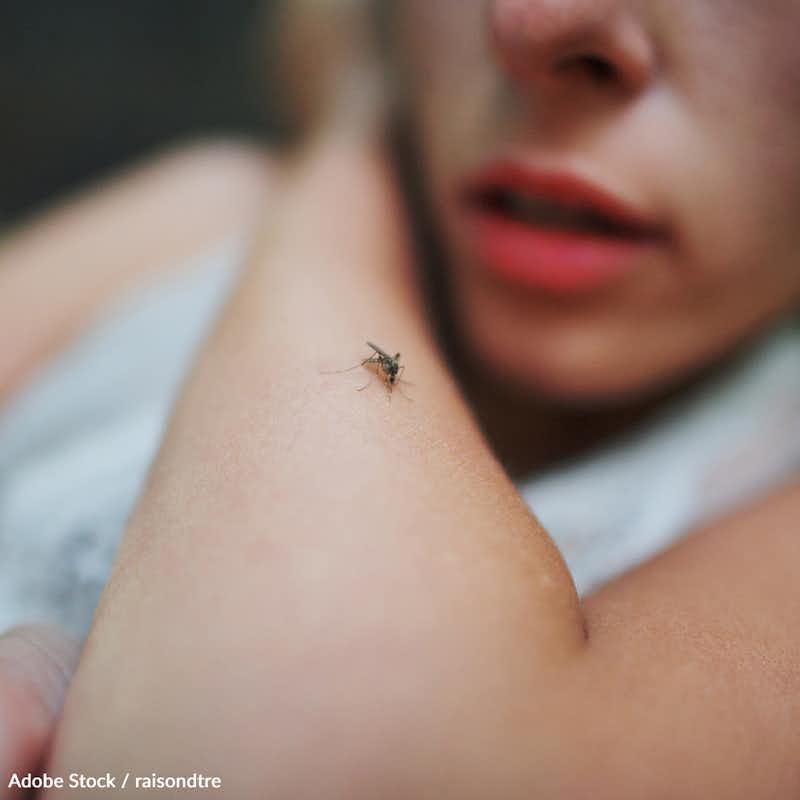Join the Fight Against Mosquito-Borne Diseases
591 signatures toward our 30,000 Goal
Sponsor: The Rainforest Site
The Culex lactator mosquito can transmit diseases like West Nile virus, which can lead to death. Take action for the healthy and safety of all!

Are you concerned about the spread of Culex lactator and other mosquitos capable of transmitting serious diseases in Florida? If so, join our petition to reduce the threat posed by these invasive species.
Florida is home to around 90 species of mosquitoes, but the recent detection of Culex lactator has scientists worried. This mosquito species, normally found in Central America and northern South America, has already established thriving populations in at least three counties in Florida1.
The potential threat posed by this mosquito species is not yet known, but it is crucial to track its spread and understand its impact on human health.
According to a study published in the Journal of Medical Entomology, Culex lactator is part of the small and poorly studied subgenus Phenacomyia2. Lawrence Reeves, the lead researcher on the study, said in a statement that "introductions of new mosquito species like this are concerning because many of our greatest mosquito-related challenges are the result of nonnative mosquitoes3."
While other Culex mosquitoes can spread diseases like West Nile virus and St. Louis encephalitis, the potential for Culex lactator to transmit pathogens is unknown, and we have no clear idea of what animals it is feeding on4.
The lack of knowledge about Culex lactator's ability to transmit diseases is a cause for concern. Reeves warns that the mosquito will likely expand its range across South Florida and move north up both coasts, increasing the risk of disease transmission5. At least 17 mosquito species found in Florida are invasive, and as the climate changes, the number is growing. With the increasing number of invasive species, scientists are struggling to anticipate the threats they may pose to human health6.
The impact of other invasive species on disease transmission dynamics is also worrying. Burmese pythons, for example, have wiped out vast numbers of small animals in the Everglades, leaving behind only rats, which can carry serious diseases7. This has increased the amount of contact between the vectors (mosquitoes) and the disease reservoirs (rats), potentially increasing the risk of disease transmission to humans8.
Florida's warm and humid climate provides a perfect breeding ground for mosquitoes, making it challenging to control their populations. The state has invested millions of dollars in mosquito control
We must work together to reduce the threat of these invasive species. Take the pledge to protect yourself, your pets, and your family from mosquitoes, and ensure a safe, healthy future for all!
- Martin Vassolo, Axios Miami (24 March 2023), "New mosquito species found in Miami-Dade is spreading across Florida."
- Lawrence E Reeves, Kristin E Sloyer, Kara Tyler-Julian, Rebecca Heinig, Atom Rosales, Candelaria Domingo, Nathan D Burkett-Cadena, Journal of Medical Entomology (22 March 2023), "Culex (Phenacomyia) lactator (Diptera: Culicidae) in southern Florida, USA: a new subgenus and species country record."
- Scott Sutton, Jon Shainman, WPTV (22 March 2023), "Culex lactator, new species of tropical mosquito, discovered in Florida is 'concerning,' researcher says."
- Department of Molecular Virology and Microbiology, Baylor College of Medicine (2023), "Mosquito-Borne Diseases."
- Ed Killer, TCPalm (22 March 2023), "Beware Florida: New mosquito found 'thriving' in 3 counties may spread, transmit disease."
- Jim Waymer, USA TODAY (27 March 2023), "There's a new mosquito on the Florida scene, and scientists are worried."
- Adam Janos, History (20 February 2020), "History Stories."
- Todd A Crowl, Thomas O Crist, Robert R Parmenter, Gary Belovsky and Ariel E Lugo, Frontiers in Ecology (2008), "The spread of invasive species and infectious disease as drivers of ecosystem change."
The Pledge:
Mosquitoes are known to be carriers of a variety of diseases, and Culex lactator is no exception. This type of mosquito is responsible for transmitting diseases such as West Nile virus, which can lead to severe symptoms and even death in some cases. Fortunately, there are steps that individuals can take to reduce the threat of Culex lactator and other disease-carrying mosquitoes.
To that end, I pledge to take the following actions to reduce the threat of Culex lactator and other mosquitos capable of transmitting serious diseases:
- Remove any standing water from my property where mosquitos can breed.
- Use mosquito repellent when spending time outdoors, especially during dusk and dawn when mosquitos are most active.
- Wear long sleeves and pants to cover exposed skin.
- Install screens on windows and doors to prevent mosquitos from entering my home.
- Keep gutters clean and free of debris to prevent water from accumulating and creating mosquito breeding sites.
- Repair any holes or gaps in screens, doors, or windows to prevent mosquitos from entering my home.
- Dispose of trash and other items that can collect water, such as old tires or cans, which can become breeding grounds for mosquitos.
- Use environmentally-friendly mosquito control methods, such as mosquito dunks or Bacillus thuringiensis israelensis (Bti), which can kill mosquito larvae without harming other wildlife.
- Educate myself about the risks associated with mosquitos and the importance of mosquito prevention.
- Share this pledge with my loved ones and friends online and off.
By taking these steps, we can all do our part to protect ourselves, our families, and our communities from the serious health risks associated with mosquito bites.
Pledged by,